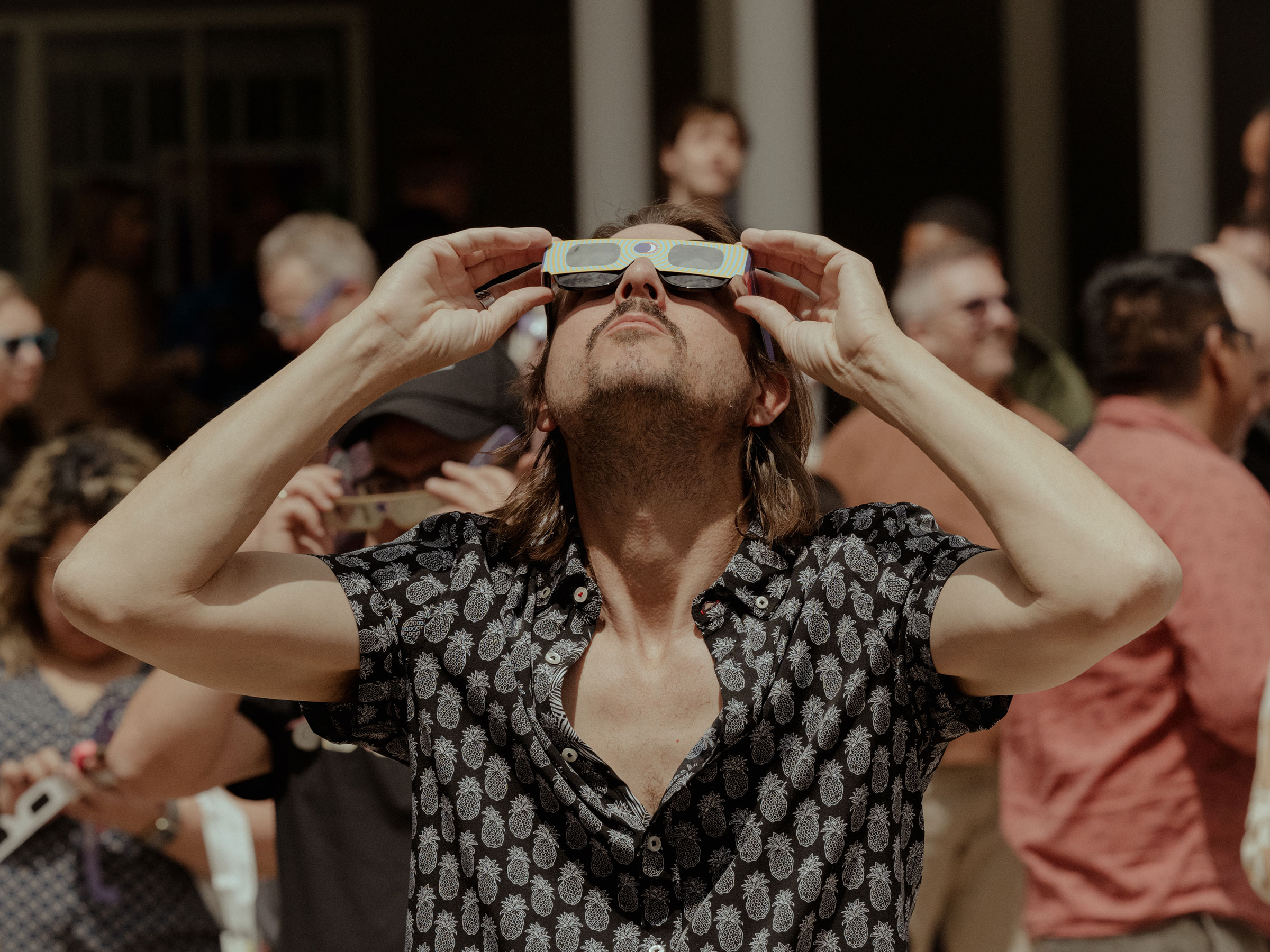If you have a headache or eye pain after viewing the solar eclipse—even if you wore eclipse glasses—you’re not alone. But don’t panic. Experts say it’s probably not a sign of serious damage.
Looking straight at the eclipse without protective glasses can potentially cause permanent damage to your vision. It’s dangerous to look directly at an eclipse—except during the period of "totality," when the sun is entirely covered by the moon—for the same reason it’s never a good idea to stare at the sun: its light can burn your retina, a risk that’s formally known as solar retinopathy.
RELATED: Best Vision Insurance Companies for 2024
But if you suffered this kind of damage, you’d be more likely to experience visual disruptions—such as blurriness, light sensitivity, or dark spots—over the following hours, rather than eye pain. The retina doesn’t have pain nerves, according to the American Academy of Ophthalmology (AAO).
Headaches can be a symptom of solar retinopathy, AAO says. But in most cases, someone develops a headache because of other vision issues, rather than as a primary symptom, says Dr. Lucia Sobrin, a retina specialist at Massachusetts Eye and Ear.

Read More: How Cities Around the U.S. Are Celebrating the Eclipse
If you have a headache without accompanying visual issues, you're almost definitely in the clear, particularly if you wore protective glasses as directed, says Dr. Avnish Deobhakta, an ophthalmologist at New York Eye and Ear Infirmary of Mount Sinai. Most likely, he says, you're experiencing regular old eye strain, which can make your head hurt.
Focusing on something far in the distance can strain the eyes, Deobhakta says, particularly after wearing dark eclipse glasses that cause the pupils to dilate. "It's very similar to when people stare at a screen for a long time in the dark," he says.
Or, Sobrin adds, you could just be feeling the effects of light sensitivity after staring at the sky in a way you usually don't.
In most cases, headaches and eye pain should fade within a few hours of viewing the eclipse, Deobhakta says, though you can always consult a physician if you're worried. Like the eclipse, "this too shall pass," he says.
More Must-Reads from TIME
- Donald Trump Is TIME's 2024 Person of the Year
- Why We Chose Trump as Person of the Year
- Is Intermittent Fasting Good or Bad for You?
- The 100 Must-Read Books of 2024
- The 20 Best Christmas TV Episodes
- Column: If Optimism Feels Ridiculous Now, Try Hope
- The Future of Climate Action Is Trade Policy
- Merle Bombardieri Is Helping People Make the Baby Decision
Write to Jamie Ducharme at jamie.ducharme@time.com